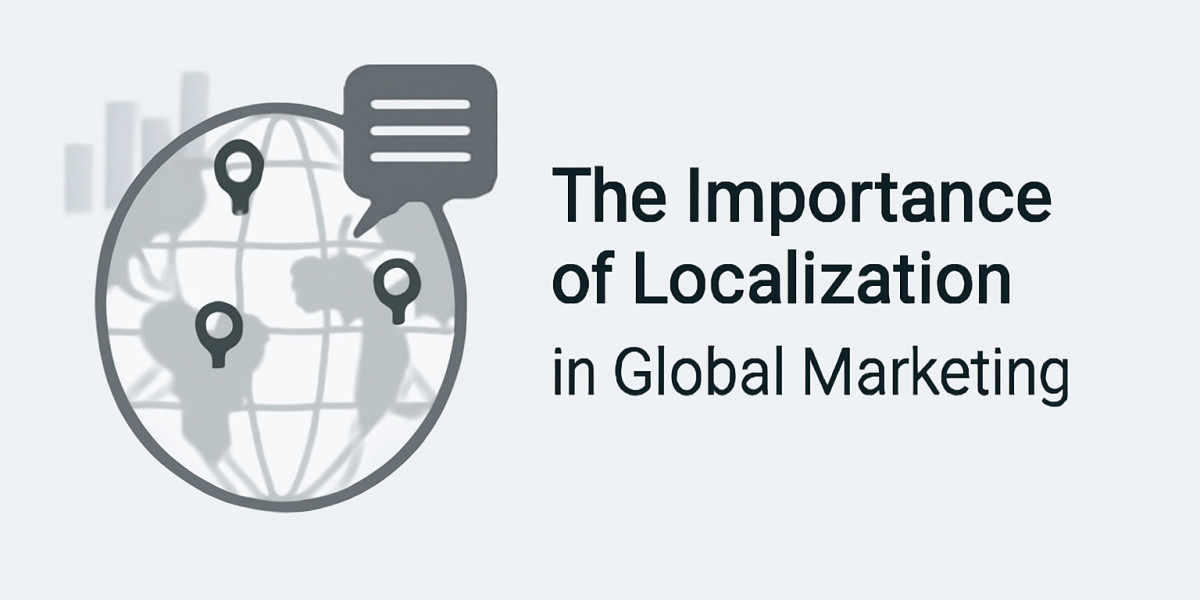In today’s interconnected world, businesses are no longer confined by borders. Expanding globally offers tremendous growth opportunities, but it also presents unique challenges-chief among them is effective communication with diverse audiences. This is where localization plays a crucial role. More than just translation, localization adapts your marketing content to fit the cultural, linguistic, and social nuances of each target market. Partnering with a top translation company can help your business navigate these complexities and build meaningful connections worldwide.
What Is Localization and Why Does It Matter?
Localization involves tailoring your products, services, and marketing messages to resonate authentically with a specific locale. Unlike simple translation, which converts text from one language to another, localization considers cultural preferences, idioms, customs, and even visual elements like colors and images. This ensures that your brand message is not only understood but also embraced by local audiences.
For example, a campaign that works well in the United States might need significant adjustment to appeal to consumers in the UAE, Japan, or Brazil. Localization bridges this gap by creating content that feels native and relevant, which is essential for building trust and engagement.
How Localization Drives Global Marketing Success
1. Expands Market Reach and Boosts Sales
Research shows that 65% of consumers prefer to buy products in their native language, and 40% won’t purchase from websites in other languages at all. Localization removes language barriers and cultural disconnects, making your offerings more accessible and attractive to new markets. By working with a top translation company, businesses can ensure that their marketing materials, websites, and product information are adapted accurately and effectively for each region, leading to higher conversion rates and increased revenue.
2. Enhances Brand Relevance and Customer Loyalty
Localization helps brands connect on a deeper level by respecting local customs, holidays, and social norms. When customers see that a brand understands their culture and speaks their language, it fosters loyalty and emotional attachment. This cultural sensitivity differentiates your brand from competitors who rely solely on generic global messaging. A top translation company will have the expertise to navigate these nuances, ensuring your brand voice remains consistent yet locally relevant.
3. Avoids Costly Missteps and Miscommunications
Cultural misunderstandings or inappropriate content can damage a brand’s reputation and alienate potential customers. Localization mitigates these risks by adapting content to avoid offensive or confusing elements. For instance, colors, symbols, or phrases that are positive in one culture may be negative or taboo in another. A professional localization partner will conduct thorough cultural research and quality assurance to prevent such errors.
4. Supports SEO and Digital Marketing Efforts
Localized content is also important for search engine optimization (SEO) in different regions. Search behaviors and keywords depend widely across languages and cultures. A top translation company not only translates but also localizes SEO keywords and metadata, helping your website rank higher in local search results. This increases organic traffic and improves your brand’s visibility in target markets.
The Role of a Top Translation Company in Localization
Choosing the right translation partner is vital for effective localization. A top translation company offers:
- Certified, native-speaking linguists who are experts in both language and culture.
- Industry-specific knowledge to handle technical, legal, marketing, or medical content accurately.
- Comprehensive quality assurance processes including editing and proofreading.
- Localization technology such as translation memory and terminology management to ensure consistency.
- Cultural consulting to tailor content beyond language, including visuals and user experience.
Such companies act as strategic partners, guiding businesses through the complexities of global marketing and helping them avoid pitfalls.
Practical Tips for Successful Localization
- Start with market research: Understand the cultural, social, and economic context of your target audience.
- Prioritize content: Focus on high-impact materials like websites, product descriptions, and advertising campaigns.
- Maintain brand consistency: Ensure your core brand message remains intact while adapting to local preferences.
- Test and gather feedback: Use local focus groups or surveys to validate your localized content.
- Invest in professional services: Avoid DIY translation tools for critical content; rely on experienced localization providers.
Conclusion
Localization is no longer optional for businesses aiming to thrive globally-it is a strategic imperative. By adapting your marketing efforts to meet the unique needs of each market, you build trust, enhance customer experience, and unlock new revenue streams. Collaborating with a top translation company ensures your localization efforts are accurate, culturally relevant, and aligned with your brand values.
In an increasingly competitive global economy, the companies that succeed are those that speak their customers’ language-both literally and culturally. Localization is the bridge that connects your business to the world, turning global ambitions into local successes.



